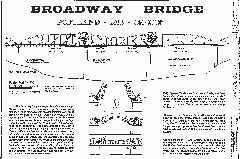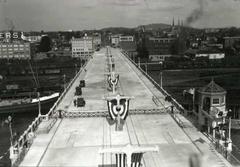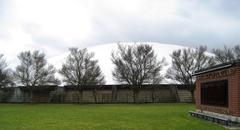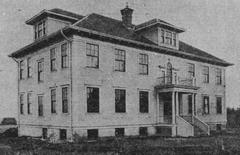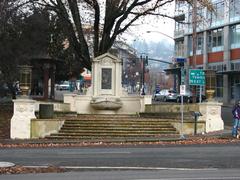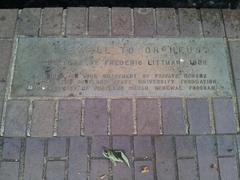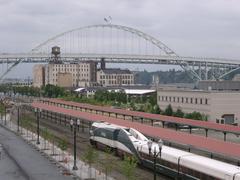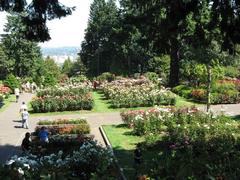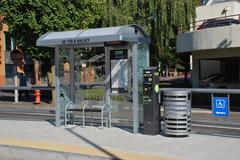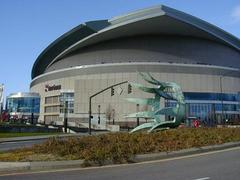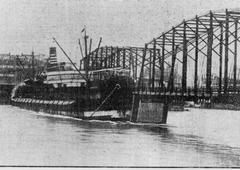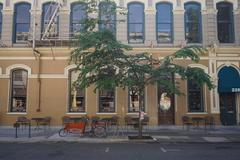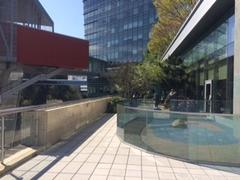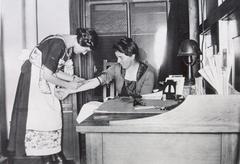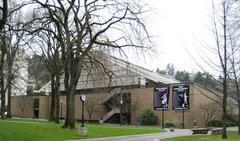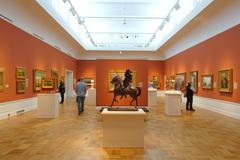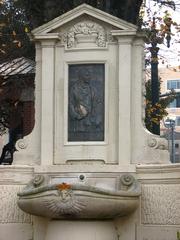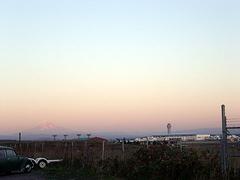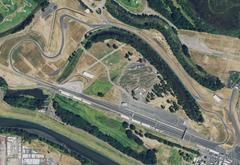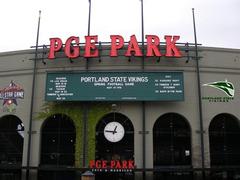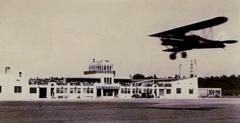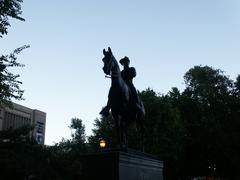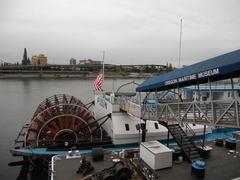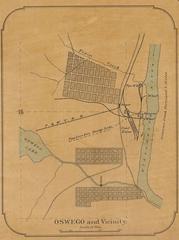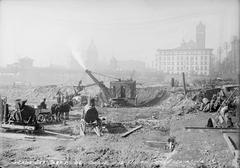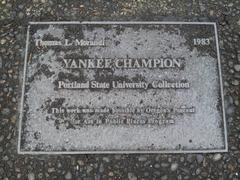British Overseas Restaurant Corporation
British Overseas Restaurant Corporation Portland Visiting Hours, Tickets, and Attractions Guide
Date: 04/07/2025
Introduction to the British Overseas Restaurant Corporation in Portland
The British Overseas Restaurant Corporation (BORC) in Portland, Oregon, was a distinctive establishment that mirrored the city’s ongoing evolution in culinary innovation and cultural identity. Located in the historic Boise neighborhood, BORC’s journey—from its controversial beginnings as Saffron Colonial to its thoughtful rebranding—offers a lens into Portland’s broader social conversations around history, inclusivity, and representation. Opened in 2016, the restaurant’s initial colonial-themed branding was met with significant community backlash, especially given the neighborhood’s deep African American roots. This prompted a quick and meaningful rebrand as BORC, a name drawing inspiration from the British Overseas Airways Corporation, and a renewed commitment to cultural sensitivity and community engagement.
Although BORC closed in 2019, its legacy remains significant for anyone interested in Portland’s food scene, urban development, and cultural mosaic. This guide provides detailed insight into BORC’s history, its influence on the Boise neighborhood, and practical information for those wishing to explore the area’s rich tapestry of dining, art, and historical attractions. For further context on Portland’s diverse cultural and historical landscape, see the Oregon Historical Society, Portland Art Museum, and the Portland Attractions Guide.
Table of Contents
- Introduction
- About BORC Restaurant and Its Location
- History and Controversy
- Visiting BORC: What You Need to Know
- Legacy and Cultural Impact
- FAQs
- Conclusion
- Plan Your Visit
- In-depth Guide: British Overseas Restaurant Corporation (BORC) Cultural Experience
- Portland Japanese Garden: Visitor Guide
- Discovering Pittock Mansion: Portland’s Historic Treasure
- Summary and Visit Tips for the British Overseas Restaurant Corporation
- References and Official Links
About BORC Restaurant and Its Location
BORC was located in Portland’s Boise neighborhood, an area celebrated for its vibrant community life and rich African American heritage. The Boise district, known for its diverse dining, art galleries, and historic landmarks, remains a key destination for those exploring Portland’s multifaceted history and dynamic food culture.
History and Controversy
The restaurant began in March 2016 as Saffron Colonial, founded by Sally Krantz, who brought international experience from her time running bakeries in Hong Kong. Its original concept, focused on British-inspired cuisine from former colonies, quickly drew criticism for its colonial references and menu items such as “Plantation Punch.” Community members voiced concerns about the insensitivity of these themes, especially within a neighborhood shaped by African American history and resilience.
In response to calls for change, the restaurant rebranded just a month after opening, adopting the name British Overseas Restaurant Corporation (BORC) to better reflect cultural awareness. The new identity distanced itself from colonial connotations and signaled a more inclusive approach to both menu and messaging. The rebranding process and subsequent community engagement positioned BORC as a case study in how local businesses can respond to cultural feedback and promote dialogue.
Visiting BORC: What You Need to Know
Is BORC still open?
No, BORC closed in February 2019. The space was briefly home to Fika, a Swedish-style café, which also closed within six months.
Location:
Portland’s Boise neighborhood—a hub for creative dining, public art, and community-focused initiatives.
Accessibility and Travel Tips:
Boise is easily accessible via public transportation, car, or bicycle. The neighborhood features a mix of restaurants, boutique shops, public murals, and parks, all within a walkable area.
Nearby Attractions:
Although BORC is no longer open, visitors can enjoy destinations such as the Alberta Street corridor, known for its art galleries and lively eateries, as well as local parks and historic community centers.
Legacy and Cultural Impact
BORC’s brief but eventful history exemplifies the challenges and responsibilities that come with engaging complex cultural narratives in business. The restaurant’s rebranding and efforts to foster inclusivity contributed to important citywide conversations about race, history, and identity. For those visiting the Boise neighborhood, understanding BORC’s story adds context to the ongoing evolution of Portland’s urban culture and its commitment to inclusion and representation.
FAQs
Q: What was the British Overseas Restaurant Corporation (BORC)?
A: BORC was a British-themed restaurant in Portland’s Boise neighborhood, operating from 2016 to 2019 after rebranding from its original name, Saffron Colonial, in response to community concerns about colonial references.
Q: Is BORC still open?
A: No, it closed in early 2019.
Q: Where was BORC located?
A: In the Boise neighborhood, a culturally rich and historically significant area in Portland.
Q: What can I experience in the Boise neighborhood today?
A: The area offers a lively mix of dining, art galleries, public art installations, and community parks along Alberta Street and surrounding blocks.
Conclusion
While the British Overseas Restaurant Corporation is no longer in operation, its story remains a pivotal part of Portland’s culinary and cultural history. Exploring the Boise neighborhood today provides a window into the city’s ongoing efforts to balance heritage preservation, inclusivity, and creative expression.
Plan Your Visit
To experience the diverse culture of Portland, visit the Boise neighborhood for its array of dining, art, and historical sites. For more comprehensive guides, explore the Portland Attractions Guide, Oregon Historical Society, and Portland Art Museum. Download the Audiala app for up-to-date cultural event listings and dining recommendations.
Image suggestions: Street scenes from Boise, local murals, and historic markers to illustrate the neighborhood’s character.
In-depth Guide: British Overseas Restaurant Corporation (BORC) Cultural Experience
Historical Context and Urban Identity
BORC’s existence reflected Portland’s layered identity, shaped by waves of migration, trade, and social change. The city’s roots with Indigenous Chinookan-speaking peoples, its emergence as a port city, and its embrace of multiculturalism set the stage for restaurants like BORC to emerge as spaces for culinary and cultural exchange (Learn more about Portland’s history).
Culinary Heritage and Cross-Cultural Exchange
BORC’s menu was a unique fusion of classic British dishes and Portland’s farm-to-table ethos. The restaurant sourced ingredients locally, aligning with the city’s commitment to sustainability and quality (Sustainable dining in Portland). Through collaborations with local breweries and participation in food festivals, BORC contributed to Portland’s reputation as a culinary innovator.
Social Gathering and Community Engagement
The restaurant served as a gathering place for both locals and visitors, hosting themed events and British holiday celebrations that encouraged cross-cultural dialogue. Its communal spaces reflected Portland’s neighborhood-driven social life and the city’s commitment to inclusivity (Portland cultural events).
Artistic Expression and Cultural Programming
BORC showcased local artists, hosted live music, and partnered with cultural institutions such as the Portland Art Museum (Portland Art Museum). British-inspired décor blended with Portland creativity, and regular events—like film screenings and poetry readings—offered platforms for community engagement.
Educational Outreach and Heritage Preservation
Collaborating with organizations like the Oregon Historical Society (Oregon Historical Society), BORC offered talks, culinary workshops, and heritage-themed tours. These programs deepened visitors’ understanding of Portland’s historical connections to the UK and supported broader heritage preservation efforts.
Sustainability and Environmental Stewardship
The restaurant’s eco-friendly practices, such as sourcing from local farms and minimizing waste, mirrored Portland’s citywide sustainability initiatives (Portland sustainability initiatives).
Representation and Diversity
BORC’s staff and guest base reflected Portland’s diversity, with inclusive hiring and multilingual services. The restaurant supported equity initiatives, participated in LGBTQ+ events, and collaborated with multicultural organizations, reinforcing Portland’s progressive values (Portland neighborhoods).
Iconic Location and Urban Connectivity
BORC’s location near landmarks like the Steel Bridge and Waterfront Park made it easily accessible and integrated it into Portland’s vibrant urban life (Portland landmarks). Its participation in citywide events further embedded it within the community.
Visitor Information: Hours, Tickets, Accessibility, and Travel Tips
- Visiting Hours: BORC was typically open Monday–Saturday, 11:00 AM–10:00 PM, and Sunday, 12:00 PM–8:00 PM, with extended hours for special events.
- Reservations and Tickets: Advanced reservations were recommended, especially for special events. Details were available on BORC’s website.
- Accessibility: The restaurant was fully wheelchair accessible, with multilingual staff on hand.
- Getting There: Accessible by public transit, car, bicycle, and on foot.
- Visitor Tips: Arrive early for events, ask staff for local recommendations, and explore nearby landmarks for a richer experience.
Visuals and Media
Virtual tours, high-quality images, and interactive maps were available on BORC’s website, highlighting its décor, menu, and events.
FAQ
Q: Did BORC offer traditional British afternoon tea?
A: Yes, with reservations.
Q: Were tickets required for events?
A: Some events required advance ticket purchase.
Q: Was BORC family-friendly?
A: Yes, with a dedicated children’s menu.
Q: Did BORC accommodate dietary restrictions?
A: Yes, with vegetarian, vegan, and gluten-free options.
Q: Did BORC participate in sustainability programs?
A: Yes, aligning with Portland’s environmental initiatives.
Conclusion
BORC was more than a restaurant—it was a cultural bridge, connecting history, art, community, and sustainability. While it is no longer open, its influence endures. To explore Portland’s ongoing cultural fusion, consult official guides and visit Boise’s dynamic neighborhoods.
For more on Portland’s history and attractions, explore portland.com/history-and-culture, Portland Attractions Guide, and Oregon Historical Society.
Portland Japanese Garden: Visitor Guide
The Portland Japanese Garden, nestled in Washington Park, is a world-renowned destination offering authentic Japanese landscaping, art, and cultural programming. Established in 1967, it symbolizes the friendship between Portland and Japan and is considered one of the most authentic Japanese gardens outside of Japan.
Visiting Hours and Ticket Information
- Spring–Fall (March–October): 10:00 AM–6:00 PM
- Winter (November–February): 10:00 AM–4:00 PM
- Closed on select holidays (Christmas, New Year’s Day).
Ticket Prices:
- Adults: $18
- Seniors (65+): $14
- Youth (6–17): $12
- Children under 6: Free
Discounts are available for residents and groups.
Tip: Purchase tickets online in advance to avoid long lines.
Highlights
- Guided Tours and Workshops: Led by expert docents and featuring seasonal events and tea ceremonies.
- Photography: Best during cherry blossom season (spring) and fall foliage.
- Accessibility: Wheelchair accessible with paved paths and accessible facilities.
Nearby Attractions
- International Rose Test Garden: Adjacent to the Japanese Garden.
- Washington Park: Features hiking trails, Oregon Zoo, and Portland Children’s Museum.
- Portland Art Museum: A short drive away.
Suggested itinerary: Morning at the Japanese Garden, lunch nearby, afternoon at the Rose Test Garden.
Visitor Tips
- Best Times: Spring and autumn.
- Dress: Comfortable shoes and weather-appropriate clothing.
- Etiquette: Remain on paths, maintain quiet, and respect the contemplative atmosphere.
- Pets: Only service animals allowed.
FAQ
Q: Can I host events at the garden?
A: Yes, with advance booking.
Q: Is it suitable for children?
A: Yes, with educational programs and a peaceful environment.
For more, see Lonely Planet’s Portland Guide.
Discovering Pittock Mansion: Portland’s Historic Treasure
Perched in the West Hills, Pittock Mansion is a French Renaissance–style estate built in 1914 for Henry and Georgiana Pittock. It stands as a testament to Portland’s early 20th-century development and offers sweeping views of the city and Mount Hood.
History and Significance
Pittock Mansion reflects the lifestyle of Portland’s influential families and preserves artifacts from the era. Today, it serves as a museum and community landmark.
Visitor Information
- Hours: 10:00 AM–4:00 PM daily (check the official website for updates)
- Tickets: Discounts for seniors, students, and children; available online or onsite.
- Accessibility: Wheelchair accessible with ramps and elevators.
- Guided Tours: Available and recommended for a deeper experience.
Getting There
Located 2.5 miles from downtown Portland, Pittock Mansion can be reached by car (on-site parking) or public transit, followed by a short walk.
Travel Tip: Wear comfortable shoes for walking and visit early or late for the best views and lighter crowds.
Nearby Attractions
- Washington Park
- Portland Japanese Garden
- International Rose Test Garden
The mansion’s gardens offer excellent photography opportunities with the Portland skyline as a backdrop.
FAQ
Q: Can I take photos inside?
A: Yes, but flash and tripods may be restricted.
Q: Are guided tours available?
A: Yes, and they are highly recommended.
For more, visit the official Pittock Mansion website.
Summary and Visit Tips for the British Overseas Restaurant Corporation
BORC’s story is an important chapter in Portland’s culinary and cultural history, highlighting the complexities of engaging with sensitive historical themes while fostering community inclusion. Though the restaurant closed in 2019, its journey—from controversy to community engagement—continues to inform Portland’s discussions about identity, representation, and innovation in urban spaces. The Boise neighborhood remains a vibrant destination, rich in history, art, and diverse dining, inviting visitors to experience the many layers of Portland’s heritage.
To gain a fuller appreciation of the city’s ongoing evolution, explore resources like the Portland Attractions Guide, Oregon Historical Society, and Portland Art Museum. Tools like the Audiala app provide updates on events and places to visit throughout the city.
While BORC no longer exists, its legacy endures as part of Portland’s narrative of cultural fusion, social awareness, and culinary creativity. Plan your visit to the Boise neighborhood and the city’s historic sites to engage firsthand with Portland’s dynamic spirit.
References and Official Links
- The British Overseas Restaurant Corporation (BORC) in Portland: History, Legacy, and Visiting the Boise Neighborhood, 2016-2019
- Cultural and Social Significance of BORC in Portland: Hours, Tickets, and Visitor Experience
- Oregon Historical Society
- Portland Art Museum
- Portland Attractions Guide
